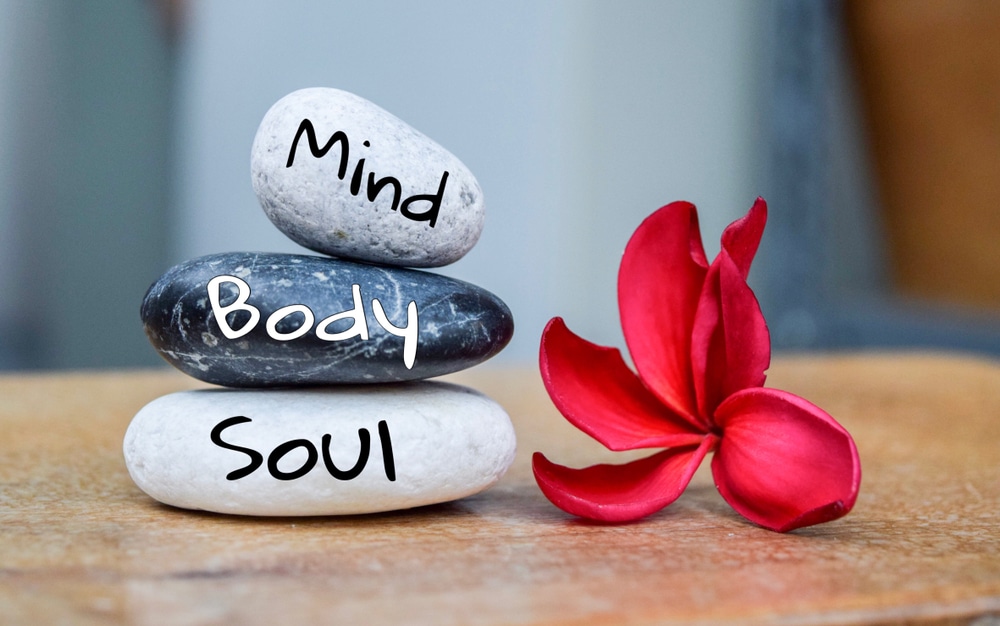Being a carer for a loved one with dementia is one of the most stressful situations anyone can face. You may be worried about the future and mourning for the past while juggling many tasks in the present. Mindfulness is a great way to quieten your busy mind from time to time and help you manage stress. It may just work for you. Life coach Steve Chamberlain explains what it is and how it might help.
What is mindfulness?
Mindfulness is a way of being in the world; a state of awareness whereby we live fully in the moment and experience whatever is unfolding in the now without resistance. It’s the realisation that we’re not our thoughts, our emotions, nor the circumstances of our life. We are the awareness of these things, and in this realisation lies our freedom.
While many people use mindfulness to experience the highs of living in the moment, mindfulness is also just as important for experiencing and coming to terms with life’s low points. Indeed awareness of what is playing out externally (situations) and internally (thoughts and emotions) during the challenging periods of our life is a crucial part of practicing mindfulness. The goal is simply to experience whatever is unfolding in this present moment.
How can it benefit carers?
Being a carer for someone you love is one of the most challenging situations life can present, and a disease like Dementia, which strips away the personality of that person day by day, is one of the most cruel. Turning to mindfulness with the aspiration that it will make you happy when going through such a challenging time is likely to be an unrealistic and undesirable goal. However, mindfulness can be the gateway to finding peace of mind by allowing you to process the inevitable negative thoughts and emotions that arise in the moment, rather than repressing or reacting to them. Through four stages – awareness, acceptance, forgiveness and surrender – you’re able to acknowledge and release pervasive thoughts and emotions, including fear, anxiety, anger and guilt. The key realisation is that you don’t have to stop negative thoughts or feelings, but are instead free to simply witness them and then choose your response in the moment. Mindfulness won’t change the situation, but your experience of it and your internal state can be transformed to one of forgiveness and peace.
What if you’re too busy to do it?
The beauty of practicing mindfulness is that there’s actually no time involved. You either are mindful or you’re not. It’s a moment by moment choice, whereby you move from resistance and reaction to acceptance and response. If you have time to sit for a few minutes each day in a state of awareness, or to go for a mindful walk, this can aid and deepen your practice, but it’s not essential. Instead, mindfulness is simply about being where you are totally, and experiencing whatever arises in that moment completely before choosing your response. In spite of our common fear to the contrary, we’re always able to handle what arises in the now no matter how challenging it may feel, and in this realisation lies your freedom.
How will coaching help carers?
You may also benefit from life coaching if you’re juggling many roles and feel that your life is not within your control. As a carer it’s likely that you currently have very little time to pause, reflect or share, and you may feel guilty for thinking about yourself or your future. You may also be conscious of not wanting to burden those close to you, which is why having a coach on your side with whom you’re free to share anything in a confidential and supportive environment can be so liberating.
Coaching provides a safe space in which you can share your deepest fears and anxieties, talk about and honour the person you love, and come to terms with and plan for a future without them. The kind of areas we could explore are how to handle worry and fear, and improve sleep, how to move beyond toxic emotions such as guilt, anxiety and anger, and how to plan for the future, but you can use the space to go anywhere of value.
As well as delivering mindfulness training in the city, for companies including BBC Worldwide, I also run monthly masterclasses in Chislehurst, South East London, themed on areas such as parenting, work and relationships. They run for 75-minutes and, as well as some structured content, include the opportunity to learn from others’ experiences and ask questions, plus the chance to enjoy guided meditations in a calm and relaxed setting. They are designed to give you a safe space to understand and deepen your practice of mindfulness no matter where you are on your journey. You can find out more online or please feel free to get in touch.
Steve Chamberlain is offering a free mindfulness audio programme to Dementia Help’s audience. You can download a 90-minute introduction to mindfulness audio programme with the code CARE.
